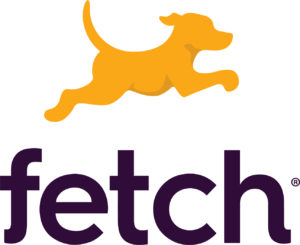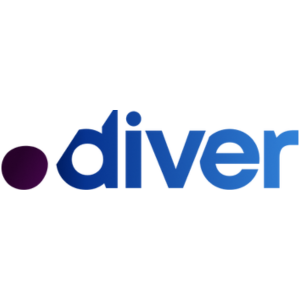How Agencies Can Adapt in a recession — Erik Huberman // Hawke Media
Erik Huberman
Hawke Media

- Part 1Strategies to Recession-Proof Your Business
- Part 2Growth from Search vs Social Content in a recession — Erik Huberman // Hawke Media
- Part 3 How Agencies Can Adapt in a recession — Erik Huberman // Hawke Media
Show Notes
Quotes
-
“I think lots of agencies out there have no idea what they are doing so I don’t know whether they are going to help you recession or not but if you have a really good agency then cuttingthem is a really dumb decision because that’s the part that might have saved your company.” -Erik“I think it starts with making sure you have a good agency and then from there cutting it was the last thing you could do because the reason an agency is valuable above everything else is that outside perspective when things are changing rapidly could be the view of the forest from the trees, and actually help you navigate what’s going on because they are seeing more than you are.” -Erik“So there are different types of agencies but let’s assume you want to grow your business. If an agency has been around for many years and they are telling people that they can grow their companies but they can’t grow their own, it seems a little off. Number one is to find a company that has taken a company like yours and it has gotten it to where you want to be because that’s the idea, they should be guiding you and not learning on your dime.” -Erik “This is the checkbox I don’t see often go through which is why there areso many tiny little agencies all over the place. There are 25,000 digital agencies in the US, the average of which has seven employees and I’m pretty confident that most of them are not really good.” -Erik“You need to look at agencies who have experience growing brand similar to yours, and they’ve also had some success growing their own business. I feel like part of finding the right agency is you find people that are motivated to work on your account and also have the functional area expertise to work on the campaigns and strategies that you want.” -Erik“I had this asked to me by a private equity fund recently, “How do you know that you are not getting any better performance from another agency at any given point?’ but that’s like being married and saying, ‘Can I have a better marriage with someone else?’ At some point, you have to commit and then you don’t want to compare it. You just want to judge, ‘Is this working?’, you don’t want to say, ‘Could I do better with others?’ because the grass is always greener and you have the switching cost risk and the flipping cost risk is significant if it’s working.” -Erik“Building some capabilities in-house because there is this nuance in your businesses that I cannot get as an agency is super important too but it is that balance that is critical. For companies that go hyper-overhead-driven and built tons of in-house teams, they are going to struggle in a recession.” -Erik“If you use agencies to complement your core in-house teams, that’s great because agencies are nimble. We’re easy to drop certain services, ebb and flow your budgets etcetera, depending on what your needs are. You should have a lot more flexibility with your agency so when things are ebbing and flowing, you can ramp up and down faster than you could with an in-house team.” -Erik“For us, our margins aren’t big enough to pay less for the same service. If your agency says yes to that and it’s not like a short term we’re just gonna help you out thing, that’s a bad sign already that they may be charging you too much.” -Erik“Consumer barely declined during this recession but nobody spent on travel and leisure. All that money went into consumer spending on products which are a lot of our clients. We were able to see that really quickly and tell them that this is an opportunity.” -Erik“Advertising costs are down 30%, which again, something we know that they might not know as we see across the board, consumer behavior is skyrocketing so we tell them to double down. The companies that listened to us, the average e-commerce that stuck with us in April, doubled their revenue.” -Erik“Cash went crazy. Savings account are at a 30-year high right now. Knowing all this, people don’t hold on to their money and that they spend it. We’re consumers, we’re raised to be. So that is what happened here and again we saw the data of that happening, within a week. Now CMDC published yesterday that e-commerce grew 97% in the past quarter.” -Erik“The keyword here is adaptation when you think about how agencies can help you. The world is changing and user behavior is changing.” -Ben“The answer comes down to aggregate data. Agencies are going to see the answers quicker because we are doing it with so many different companies.” -Erik“I think at the end of the day, obviously your agency relationship is important to you and they are there to help you by not only providing extra horsepower but also by providing you with insights of what is happening across brands.”-Ben “I think the agencies that are struggling now are going to continue to struggle for a while because the problem is, once the company makes the decision of firing the marketing agency, they are going to have a long recovery because they’ve lost a lot of ground. On top of the fact that there’s a recession, they also pull back on the marketing which was originally driving revenue.” -Erik
- Part 1Strategies to Recession-Proof Your Business
- Part 2Growth from Search vs Social Content in a recession — Erik Huberman // Hawke Media
- Part 3 How Agencies Can Adapt in a recession — Erik Huberman // Hawke Media
Up Next:
-
Part 1Strategies to Recession-Proof Your Business
Today we're going to discuss how to adapt and scale your business to be recession-proof. Joining us is Erik Huberman, the Founder and CEO of Hawke Media, which is a full service marketing consultancy, which acts as an outsource CFO for their clients in growing businesses of all sizes and industries on month to month contracts. In part 1 of our conversation, we are going to talk about his strategies for recession proofing your business.
Play Podcast -
Part 2Growth from Search vs Social Content in a recession — Erik Huberman // Hawke Media
Today we're going to discuss how to adapt and scale your business to be recession-proof. Joining us is Erik Huberman, the Founder and CEO of Hawke Media, which is a full service marketing consultancy, which acts as an outsource CFO for their clients in growing businesses of all sizes and industries on month to month contracts. In part 2 of our conversation, we're going to talk about some growth strategies, including how you can grow using search and social content.
Play Podcast -
Part 3How Agencies Can Adapt in a recession — Erik Huberman // Hawke Media
Today we're going to discuss how to adapt and scale your business to be recession-proof. Joining us is Erik Huberman, the Founder and CEO of Hawke Media, which is a full service marketing consultancy, which acts as an outsource CFO for their clients in growing businesses of all sizes and industries on month to month contracts. In part 3 of our conversation, we're going to talk about how agencies can help you adapt for the future.










